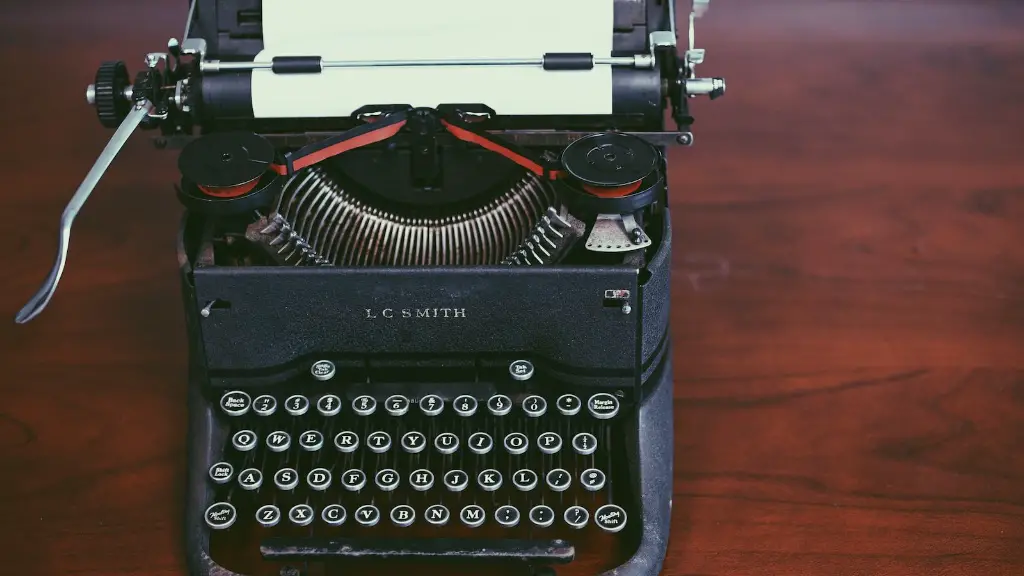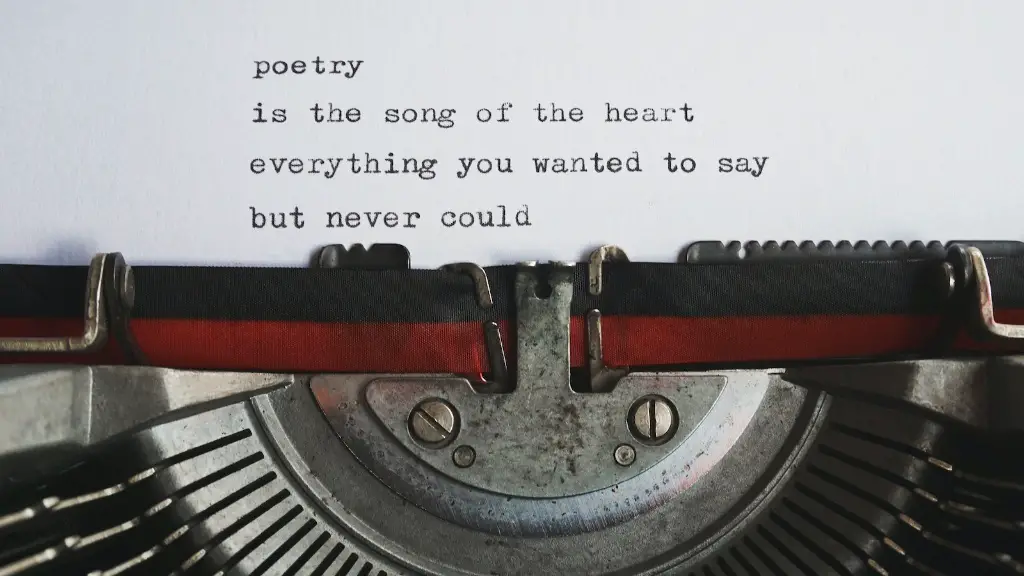Aesthetic Expression
Poetry is an ancient art form of aesthetic expression, which dates back to the very beginning of mankind. Within the years, poetry has evolved, taking on various forms and genres and creating an endless sea of variety. But one question remains – where exactly does poetry come from? This article seeks to explore the theories of how poetry originated and how it has since developed over the centuries.
It is commonly believed that poetry was initially used as a primitive source of storytelling, with the earliest poetry being incomplete records of either personal or tribal events. In the form of narrative poetry, these stories and the lessons in them were passed down orally from generation to generation, allowing the culture to remain and thrive even when written documentation was not available.
Another major influence on early poetry was that of ritual, as poetry was often used to invocate spiritual meaning and invoke the divine. This was especially true for bards that traveled from town to town, performing ancient tales and myths for members of the community. By echoing these stories in his words, the bard was able to create an avenue for connection between the stories themselves and the people who told them.
Call and Response
The practice of “call and response” was prevalent throughout many cultures and was heavily used in poetry. The poetic structure of call and response involves a storyteller or singer responding to one another. This allows listeners to interact with the story by answering the speaker’s questions or building upon the speaker’s words. By eliciting this type of response from audiences, the storyteller was able to further engage the audience and draw them into the poem.
This form can be utilized in many different ways, as the storyteller might choose to respond to their own questions or statements. Additionally, two storytellers can engage in a call and response chorus, using their words to create a larger narrative. This particular form of poetry is still quite popular today, appearing in genres such as rap and hip-hop, among others.
Early Literary Works
In addition to the poetic traditions of storytelling, poetry also began to emerge in the form of early literary works such as epics and lyrics. These works were often created as memorials to individuals, events, or gods and often served as evidence of a particular society’s culture and beliefs. The epic poems of Homer, for example, are believed to have served as important historical markers, chronicling the rise and fall of a particular era of the Greek and Roman world.
Similarly, lyric poetry served as a tool to express feelings, sentiments, and beliefs, which were often much more complex than was allowed in other forms of literature. Within the pages of these poems, writers were able to express profound feelings and ideas that were not able to be so openly discussed in other mediums.
Impact and Influence of Poetry
Today, poetry’s impact and influence is found everywhere, from literature to music and from the academic world to cultures all over the world. Poetry has been adopted and adapted by countless individuals to create powerful works of art that have the potential to evoke emotion and inspire thought.
Because of its popularity, there are now countless poets and poetry movements that influence and shape the way people view the world and themselves. These movements range from traditional works such as Shakespeare’s sonnets to revolutionary pieces such as Langston Hughes’s groundbreaking Harlem Renaissance poems.
Contemporary Poetry
In the contemporary world of poetry, writers have an unprecedented amount of freedom to explore their creativity and develop works that not only demonstrate their own feelings, but also the feelings of their readers.
As technology advances, many writers are now able to share their words online in the forms of blogs and other digital platforms. This has granted poets access to a larger audience and enabled them to interact with readers in new and innovative ways.
Future of Poetry
Looking ahead, poetry will continue to evolve both in terms of its form and its themes, as poets of all ages and backgrounds continue to explore their creative power and share their individual voices.
As the world around us advances, poetry will remain a powerful tool for expressing inner turmoil, exploring societal issues, and reflecting upon our individual and collective experiences. By connecting its readers to reflections on the human condition and allowing them to explore their unique perspectives, poetry is sure to remain a powerful and influential art form for many years to come.
Alternative Voices Through Poetry
Poetry has always served as a way to provide alternative and dissenting voices to the oppressive views of a given society. Throughout history, the written word has given a platform to those who could not find expression in its mainstream counterparts.
One of the most significant uses of poetry as dissent has been in marginalized communities who wish to express their struggles and claim their voices in a safe space. This practice has given voice to many who have found poetic expression to be a powerful form of rebellion in the face of oppression.
The Power of Poetry
In the end, the most important thing to understand about poetry is that it has the potential to move people and create real change. Poetry has been instrumental in inspiring movements and changing minds, providing an avenue for individuals to make their voices heard.
Ultimately, poetry is powerful because it gives people the opportunity to be heard, to impact their world, and to tell stories that might otherwise go unheard. Poetry is a tool that grants us the opportunity to use our words to create something that can be shared and appreciated by future generations.


